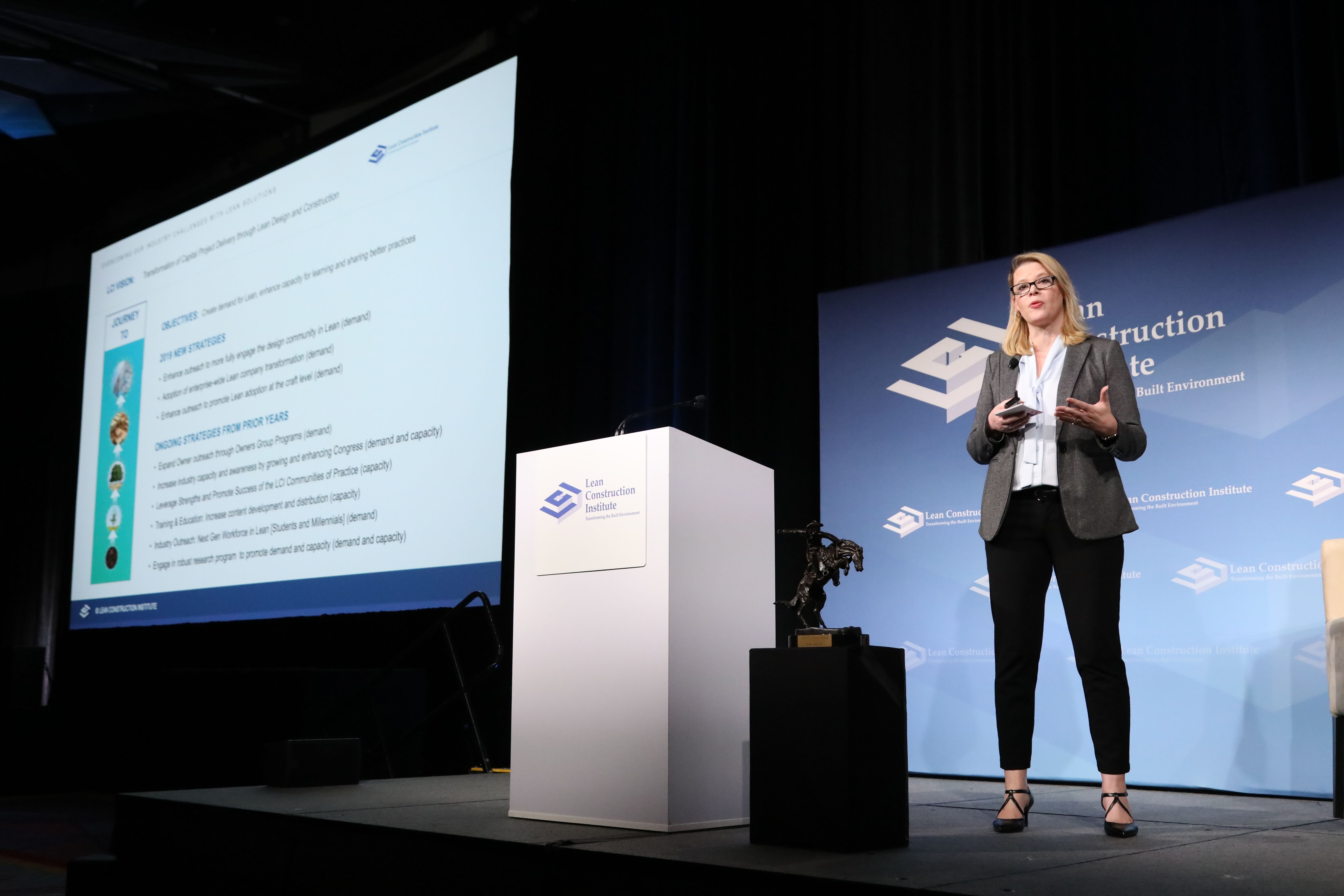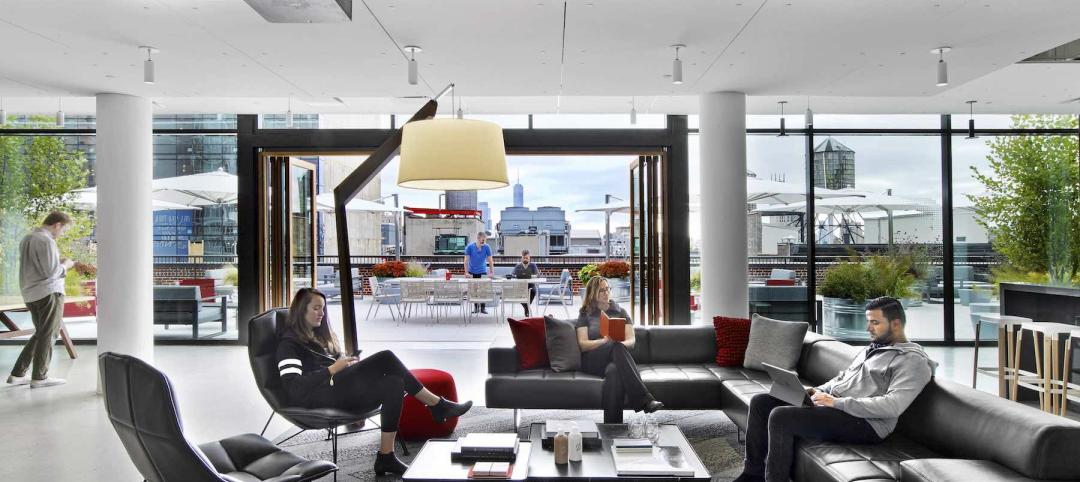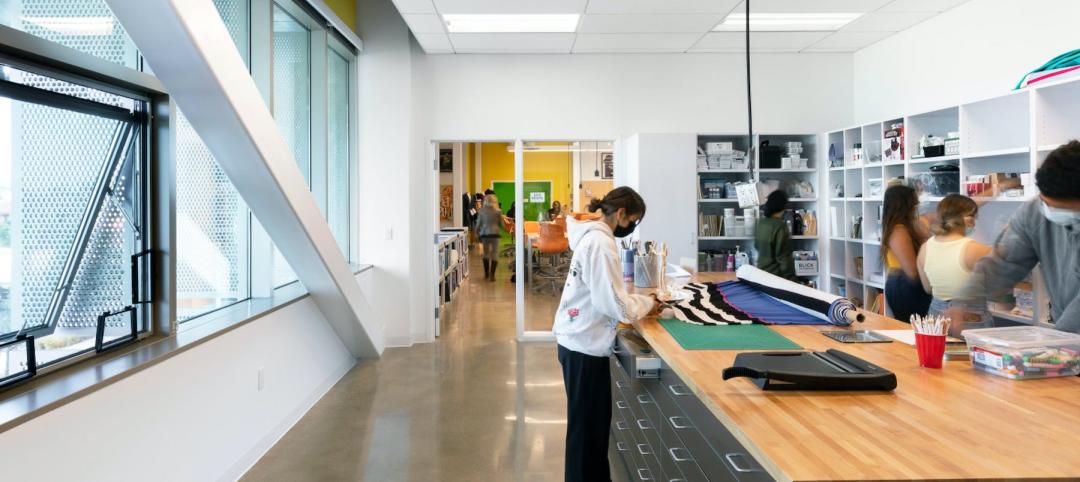The building design and construction industry must embrace change now. Stresses with finding talent, budgets, schedules, and the needs of clients call for change in approach. Companies are looking not only at how we work, but how we work with others.
My role as Chief Process Officer at HKS has allowed me to take a critical look at our operations within the firm, how we embrace our role in the design process, and how we set up our talent for success. This year, I combined that role with chairing the Board of the Lean Construction Institute, which allowed me to have conversations about the industry while tackling those same conversations within the firm.
The 2019 Lean Construction Institute Congress, held in Fort Worth, Texas, Oct. 14-18, was attended by more than 1,600 owners, architects, consultants, engineers, constructors, and trade contractors. LCI Congress featured more than 30 educational sessions and 75 presentations focused on Lean in the design and construction industry. I attended many of these sessions and offer the following takeaways, all of which focus on how we build stronger teams and contribute more value to our clients:
• More is not more: The opening keynote was not from a well-versed-in-Lean evangelist. Greg McKeown, author of Essentialism, The Disciplined Pursuit of Less, spoke about the power of less but better. He challenged us with these simple steps:
1. Explore. What is something essential for you right now that you are under-investing in?
2. Eliminate. What is something nonessential that you are over investing in?
3. Execute. How can you make it as easy as possible to transition the time you spend to the essential things?
Lean thinking encourages teams to add value (essential) by eliminating waste (non-essential) from all work efforts. McKeown’s insight can help us recognize and identify simply what is easy for us to do—take on more that is nonessential. As part of a team, agree together on what is essential and nonessential, get consensus, and build more value.
• Integrate evidence-based design through Lean thinking: Lean encourages value-based decision making with an all-team collaborative work environment. Evidence-based design reinforces the idea that we should be making decisions built on proven research. Using Lean methods for research, understanding customer needs, and applying the EBD research to solve problems is a pairing that maximizes the team’s efforts.
• This is a humble place—leave your egos at the door: The LCI Congress is a unique gathering of owners, designers, developers, project coaches, contractors, and trade contractors to discuss what worked and what didn’t with their projects. They share their mistakes—and how to fix them—even with competitors. The same for project teams. Multiple case studies presented their project stories, discussing their successes and failures. Teams represented different companies and disciplines of work but talked as one unit. The overall message: To effectively solve problems we must use our expertise, not our egos.
Also see: Movers + Shapers Report - Lean and Mean
• We are here to learn: Mike Staun, formerly with Proctor and Gamble, talked about the most pressing challenges in construction today and how Lean IPD can solve them. Stan Davis and Shernette Kydd with Cook Children’s Medical Center talked about strategic thinking with both healthcare project delivery and healthcare delivery. Merck’s journey, told by George Cusick, focused on growth demands based on customers’ needs and how working with Tier 1 construction partners helped meet those needs. No one claimed to have all the answers, but they all wanted to learn.
• Building relationships is the key: Our projects serve a greater purpose; they serve communities and the people in them. Engaging with the community for a purpose bigger than ourselves is an easy way to build strong relationships on teams. Teams that have strong relationships and Lean cultures of improvement can openly tackle problems and find innovative solutions. And they perform better.
• Mental health is a construction industry issue: Building design and construction can be a stressful profession. Statistics shared at the Congress showed that the construction suicide rate is four times the national average and is the leading cause of construction fatalities. The decline in talent entering related fields, the stress of budgets and schedules, and increased expectations add to those strains. We should watch out for our team members and the warning signs of depression, and encourage them to get help.
• Have fun: Whether it was in the Advanced Practitioners session, where industry leaders shared ideas, or in individual presentations, bringing back the fun was a common theme at LCI Congress. Developing a strong bond with your project team, regardless of your background, allows you to solve conflicts and still have fun.
Related Stories
| Aug 11, 2022
Report examines supposed conflict between good design and effective cost management
A report by the American Institute of Architects and the Associated General Contractors of America takes a look at the supposed conflict between good design and effective cost management, and why it causes friction between architects and contractors.
Architects | Aug 11, 2022
Mancini Duffy Bill Mandara on expanding through diversification
In this segment for HorizonTV, BD+C's John Caulfield interviews Mancini Duffy's CEO and Co-owner William Mandara about his firm's recent growth, which includes an acquisition and new HQs office.
Energy Efficiency | Aug 11, 2022
Commercial Energy Efficiency: Finally “In-the-Money!”
By now, many business leaders are out in front of policymakers on prioritizing the energy transition.
High-rise Construction | Aug 11, 2022
Saudi Arabia unveils plans for a one-building city stretching over 100 miles long
Saudi Arabia recently announced plans for an ambitious urban project called The Line—a one-building city in the desert that will stretch 170 kilometers (106 miles) long and only 200 meters (656 feet) wide.
| Aug 10, 2022
U.S. needs more than four million new apartments by 2035
Roughly 4.3 million new apartments will be necessary by 2035 to meet rising demand, according to research from the National Multifamily Housing Council (NMHC) and National Apartment Association.
| Aug 10, 2022
Gresham Smith Founder, Batey M. Gresham Jr., passes at Age 88
It is with deep sadness that Gresham Smith announces the passing of Batey M. Gresham Jr., AIA—one of the firm’s founders.
| Aug 9, 2022
Work-from-home trend could result in $500 billion of lost value in office real estate
Researchers find major changes in lease revenues, office occupancy, lease renewal rates.
| Aug 9, 2022
5 Lean principles of design-build
Simply put, lean is the practice of creating more value with fewer resources.
| Aug 9, 2022
Designing healthy learning environments
Studies confirm healthy environments can improve learning outcomes and student success.
Legislation | Aug 8, 2022
Inflation Reduction Act includes over $5 billion for low carbon procurement
The Inflation Reduction Act of 2022, recently passed by the U.S. Senate, sets aside over $5 billion for low carbon procurement in the built environment.

















